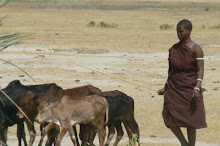
Victims cling to the top of a submerged house in Taunsa Sharif today as the death toll keeps rising
Rescuers were still trying to reach 27,000 people trapped on high ground or clinging to rooftops after the heavy monsoons rains engulfed their homes, and the death toll was expected to rise.
Villages have been washed away and crops and infrastructure destroyed, with the government describing the destruction in the north west of the country as 'massive and devastating'.
The Khyber-Pakhtoonkhwa province, which neighbours Afghanistan, is poverty stricken and has already been hit hard by fighting between the army and the Taliban.
Oxfam has launched an emergency aid effort as more monsoon rains were predicted
 The village of Nowshera was swept away as the worst monsoon rains in living memory devastated the Khyber-Pakhtunkhwa Province in Pakistan
The village of Nowshera was swept away as the worst monsoon rains in living memory devastated the Khyber-Pakhtunkhwa Province in Pakistan A flood victim searches for his belongings through what is left of the Pakistan village of Nowshera that was literally washed away by a river of mud as monsoon rains triggered flash floods across the country leaving at least 1,500 dead.
It is Pakistan's worst floods for a generation and aid workers are warning of an impending humanitarian catastrophe.
And few places felt it more than Nowshera, in Khyber-Pakhtunkhwa Province, where children were left desperately searching for food and relying on the help of aid workers. A young boy from the flood-hit village of Nowshera survives on a handful of rice
A young boy from the flood-hit village of Nowshera survives on a handful of rice
Almost 700 people have drowned in the Peshawar valley while a further 400 were killed in the Swat and Shangla regions, authorities said, as helicopters continued to pluck survivors to safety.
As evacuees arrived in camps, there were fears that disease would begin to break out before aid organisations could get resources to the area.
Jane Cocking, Oxfam's humanitarian director, said: 'This is a flood on a scale we have not seen in decades in Pakistan and requires an aid effort of equal measure. People in the flood's wake were already desperately poor and what little possessions they had have been washed away. The extent of this crisis is only slowly emerging.'
 Rescue effort: Some of the 30,000 deployed Pakistani soldiers evacuate those stranded on high ground
Rescue effort: Some of the 30,000 deployed Pakistani soldiers evacuate those stranded on high ground

Decimated: An aerial view of flooded areas in Tonsa Sharif after monsoon rains washes away whole villages
The UN estimates one million people have been affected by the floods. In the Swat region alone, more than 14,600 houses and 22 schools were destroyed the government said.
Spokesman Latifur Rehman, said: 'Whole villages have washed away, animals have drowned and grain storages have washed away. The destruction is massive and devastating.
Pakistan says it has rescued 20,700 people from the floods, with 43 helicopters and 30,000 troops deployed. But some victims still criticised the response.
Hakimullah Khan, whose wife and three children have disappeared near the town of Charsadda, said: 'Water is all around and there is no help in sight.'
The government said the floods were the country’s worst since 1929 and the United Nations estimates 1million people have been affected nationwide.
The British Government pledged £5million today to help hundreds of thousands of those left homeless by the flooding.
International Development Secretary Andrew Mitchell said at least 800,000 people would benefit from the new UK aid, which will go towards providing safe drinking water, hygiene kits and toilets.
The British aid, which is being channelled through the United Nations Children's Fund (Unicef), will buy about 136,000 hygiene kits, 4,560 toilets, 336,000 bars of sanitising soap, 270,000 buckets or jerry cans, 400,000 water purification kits and 800,000 water purification tablets.
The UK's Department for International Development has already contributed another £5 million to the UN-run Pakistan Emergency Response Fund.
Dozens of medical teams have been sent to north-west Pakistan in the hope of preventing a massive outbreak of disease caused by the worst floods in the country's history.
The government has deployed thousands of rescue workers who have saved an estimated 28,000 people and distributed basic food items. But the scale of the disaster is so vast that many residents said it seems like officials are doing nothing.
Sohail Altaf, the top medical official in Khyber-Pakhtoonkhwa, said today: 'To avert the looming threat of spread of waterborne diseases, especially cholera, we have dispatched dozens of mobile medical teams in the affected districts.'
And there are fears that Islamist charities, some with suspected ties to militants, are offering to provide aid and spread disaster funds in the wake of the disaster.
 Devastation: People stand on the remains of a bridge washed away by flood waters in Nowshera
Devastation: People stand on the remains of a bridge washed away by flood waters in Nowshera

Evacuated: People wade through the chest-high waters in Dera Ismail Khan carrying some of their belongings.

A man braves a makeshift bridge as he attempts to flee to higher ground to escape the flood waters
Major-General Athar Abbas, of Pakistan’s army, said: ‘Virtually no bridge has been left in Swat. All major and minor bridges have gone, destroyed completely.’
Victim Ahmad Hasan, at a government relief camp in Taunsa Sharif district, said: ‘We have lost everything - our houses, our crops, cattle.’
The flooding has also affected the central Pakistani province of Punjab, where troops rescued more than 1,400 people trapped by rising water.
The threat of disease loomed as well as some evacuees in the northwest arrived in camps with fever, diarrhoea and skin problems.
It is Pakistan's worst floods for a generation and aid workers are warning of an impending humanitarian catastrophe.
And few places felt it more than Nowshera, in Khyber-Pakhtunkhwa Province, where children were left desperately searching for food and relying on the help of aid workers.
 A young boy from the flood-hit village of Nowshera survives on a handful of rice
A young boy from the flood-hit village of Nowshera survives on a handful of riceAlmost 700 people have drowned in the Peshawar valley while a further 400 were killed in the Swat and Shangla regions, authorities said, as helicopters continued to pluck survivors to safety.
As evacuees arrived in camps, there were fears that disease would begin to break out before aid organisations could get resources to the area.
Jane Cocking, Oxfam's humanitarian director, said: 'This is a flood on a scale we have not seen in decades in Pakistan and requires an aid effort of equal measure. People in the flood's wake were already desperately poor and what little possessions they had have been washed away. The extent of this crisis is only slowly emerging.'
 Rescue effort: Some of the 30,000 deployed Pakistani soldiers evacuate those stranded on high ground
Rescue effort: Some of the 30,000 deployed Pakistani soldiers evacuate those stranded on high ground
Decimated: An aerial view of flooded areas in Tonsa Sharif after monsoon rains washes away whole villages
The UN estimates one million people have been affected by the floods. In the Swat region alone, more than 14,600 houses and 22 schools were destroyed the government said.
Spokesman Latifur Rehman, said: 'Whole villages have washed away, animals have drowned and grain storages have washed away. The destruction is massive and devastating.
Pakistan says it has rescued 20,700 people from the floods, with 43 helicopters and 30,000 troops deployed. But some victims still criticised the response.
Hakimullah Khan, whose wife and three children have disappeared near the town of Charsadda, said: 'Water is all around and there is no help in sight.'
The government said the floods were the country’s worst since 1929 and the United Nations estimates 1million people have been affected nationwide.
The British Government pledged £5million today to help hundreds of thousands of those left homeless by the flooding.
International Development Secretary Andrew Mitchell said at least 800,000 people would benefit from the new UK aid, which will go towards providing safe drinking water, hygiene kits and toilets.
The British aid, which is being channelled through the United Nations Children's Fund (Unicef), will buy about 136,000 hygiene kits, 4,560 toilets, 336,000 bars of sanitising soap, 270,000 buckets or jerry cans, 400,000 water purification kits and 800,000 water purification tablets.
The UK's Department for International Development has already contributed another £5 million to the UN-run Pakistan Emergency Response Fund.
Dozens of medical teams have been sent to north-west Pakistan in the hope of preventing a massive outbreak of disease caused by the worst floods in the country's history.
The government has deployed thousands of rescue workers who have saved an estimated 28,000 people and distributed basic food items. But the scale of the disaster is so vast that many residents said it seems like officials are doing nothing.
Sohail Altaf, the top medical official in Khyber-Pakhtoonkhwa, said today: 'To avert the looming threat of spread of waterborne diseases, especially cholera, we have dispatched dozens of mobile medical teams in the affected districts.'
And there are fears that Islamist charities, some with suspected ties to militants, are offering to provide aid and spread disaster funds in the wake of the disaster.
 Devastation: People stand on the remains of a bridge washed away by flood waters in Nowshera
Devastation: People stand on the remains of a bridge washed away by flood waters in Nowshera
Evacuated: People wade through the chest-high waters in Dera Ismail Khan carrying some of their belongings.

A man braves a makeshift bridge as he attempts to flee to higher ground to escape the flood waters
Major-General Athar Abbas, of Pakistan’s army, said: ‘Virtually no bridge has been left in Swat. All major and minor bridges have gone, destroyed completely.’
Victim Ahmad Hasan, at a government relief camp in Taunsa Sharif district, said: ‘We have lost everything - our houses, our crops, cattle.’
The flooding has also affected the central Pakistani province of Punjab, where troops rescued more than 1,400 people trapped by rising water.
The threat of disease loomed as well as some evacuees in the northwest arrived in camps with fever, diarrhoea and skin problems.


















.png)






No comments:
Post a Comment